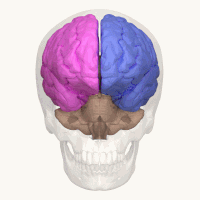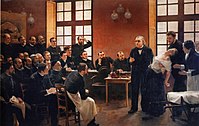
No evidence of task co-representation in a joint Stroop task
Sign Up to like & getrecommendations! Published in 2019 at "Psychological Research"
DOI: 10.1007/s00426-017-0909-z
Abstract: People working together on a task must often represent the goals and salient items of their partner. The aim of the present study was to study the influence of joint task representations in an interference… read more here.
Keywords: task; response; joint stroop; task representation ... See more keywords

Phonological encoding is free from orthographic influence: evidence from a picture variant of the phonological Stroop task
Sign Up to like & getrecommendations! Published in 2020 at "Psychological Research"
DOI: 10.1007/s00426-020-01315-2
Abstract: The phonological Stroop task, in which the participant names the color of written distractors, is being used increasingly to study the phonological encoding process in speech production. A brief review of experimental paradigms used to… read more here.
Keywords: picture; phonological encoding; phonological stroop; stroop task ... See more keywords

Trait anxiety and interference in the emotional Stroop task in young and old adults
Sign Up to like & getrecommendations! Published in 2021 at "Current Psychology"
DOI: 10.1007/s12144-021-02199-0
Abstract: Studies indicate that young individuals with high trait anxiety exhibit attentional biases towards threat due to pre-existing “danger” cognitive schemata. On the other hand, findings suggest that old individuals avoid the processing of negative information… read more here.
Keywords: anxiety; trait anxiety; stroop task;

Trait anxiety modulates the temporal dynamics of Stroop task switching: An ERP study
Sign Up to like & getrecommendations! Published in 2021 at "Biological Psychology"
DOI: 10.1016/j.biopsycho.2021.108144
Abstract: The current study aimed to find neural evidence that trait anxiety interferes with one's shifting function processing efficiency. Twenty-five high trait-anxiety (HTA) and twenty-five low trait-anxiety (LTA) participants were instructed to complete a cue-based Stroop… read more here.
Keywords: trait anxiety; task switching; group; stroop task ... See more keywords

Modifications of cognitive performance in the stroop task following deep rTMS treatment course in OCD patients
Sign Up to like & getrecommendations! Published in 2021 at "Brain Stimulation"
DOI: 10.1016/j.brs.2020.11.008
Abstract: Adaptive decision making requires the adjustment of behavior following an error in order to improve future performance, but obsessive compulsive disorder (OCD) patients are characterized by abnormal error monitoring [1,2]. For example, in cognitive tasks… read more here.
Keywords: task; ocd patients; error; stimulation ... See more keywords

Neural mechanisms of response-preparation and inhibition in bilingual and monolingual children: Lateralized Readiness Potentials (LRPs) during a nonverbal Stroop task
Sign Up to like & getrecommendations! Published in 2019 at "Developmental Cognitive Neuroscience"
DOI: 10.1016/j.dcn.2019.100740
Abstract: Inhibitory control is a core executive function (EF) skill, thought to involve cognitive ‘interference suppression’ and motor ‘response inhibition’ sub-processes. A few studies have shown that early bilingualism shapes interference suppression but not response inhibition… read more here.
Keywords: inhibition; response preparation; response; stroop task ... See more keywords

Testing the left hemisphere activation hypothesis in psychopathic offenders using the Stroop task
Sign Up to like & getrecommendations! Published in 2018 at "Personality and Individual Differences"
DOI: 10.1016/j.paid.2018.07.020
Abstract: Abstract Prior investigations of selective attention using the Stroop task have indicated individuals with high levels of psychopathic traits show reduced Stroop interference only when there is spatial separation of conflicting information. However, theories of… read more here.
Keywords: activation hypothesis; hemisphere activation; left hemisphere; stroop task ... See more keywords

Loneliness increases attention to negative vocal tone in an auditory Stroop task
Sign Up to like & getrecommendations! Published in 2019 at "Personality and Individual Differences"
DOI: 10.1016/j.paid.2018.08.016
Abstract: Abstract Lonely individuals are sensitive to negative social information. Past evidence for this finding comes mostly from research on visual cues (e.g., facial expression); less is known whether a parallel pattern occurs for auditory cues… read more here.
Keywords: stroop task; negative vocal; vocal tone; tone ... See more keywords

Electrodermal Activity of Preschool-Age Children Who Stutter During a Child-Friendly Stroop Paradigm.
Sign Up to like & getrecommendations! Published in 2022 at "American journal of speech-language pathology"
DOI: 10.1044/2022_ajslp-21-00225
Abstract: PURPOSE The aim of the study was to assess whether emotional reactivity, indexed by a distinct physiological measure of sympathetic activation, differs between preschool-age children who stutter (CWS) and preschool-age children who do not stutter… read more here.
Keywords: stroop task; preschool age; task;

Review of the International Hypnosis Literature
Sign Up to like & getrecommendations! Published in 2020 at "American Journal of Clinical Hypnosis"
DOI: 10.1080/00029157.2020.1816422
Abstract: The cognitive processes involved in cigarette cravings include an attentional bias to smoking cues. In this study, the authors examined whether hypnotic suggestion could be used to modify cravings, and attention via the smoking Stroop… read more here.
Keywords: hypnotic suggestion; suggestion; hypnosis; stroop task ... See more keywords

Chronotype and time of day effects on verbal and facial emotional Stroop task performance in adolescents
Sign Up to like & getrecommendations! Published in 2022 at "Chronobiology International"
DOI: 10.1080/07420528.2021.1998102
Abstract: ABSTRACT This study investigated chronotype and time of day effects on lexical and facial emotion processing tasks and explored relationships with sleep quality and mental health outcomes. Participants were 351 Taiwanese adolescents (204 males) aged… read more here.
Keywords: emotional stroop; time; stroop; stroop task ... See more keywords